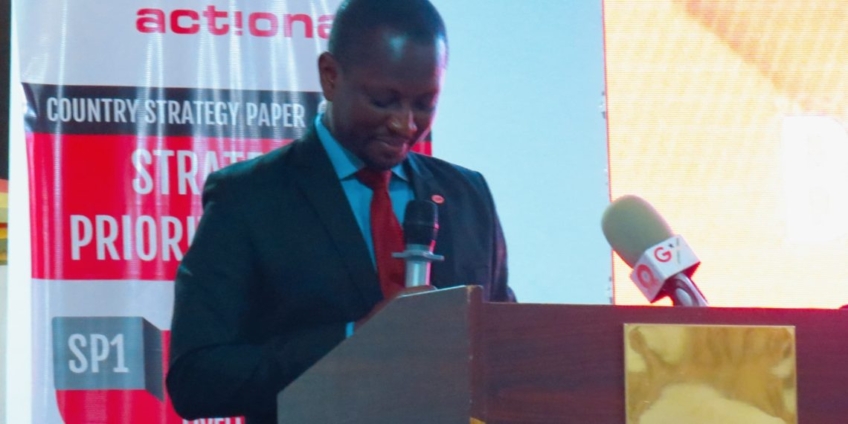Deputy Attorney General and Minister of Justice, Alfred Tuah-Yeboah, has pointed fingers at transnational companies, accusing them of being responsible for the significant environmental pollution and biodiversity destruction in Ghana.
According to him, the right to a clean, healthy, and sustainable environment is a fundamental human right that should be upheld by these multinational entities.
Addressing participants at a national stakeholder forum on business and human rights, Mr Tuah-Yeboah underscored the necessity of regulating the activities of transnational companies and other business entities that contribute to environmental degradation.
He emphasised that environmental sustainability is intricately linked to human rights, asserting that environmental crimes equate to human rights violations.
The Deputy AG stressed that transnational companies are major contributors to environmental pollution in Ghana, highlighting the urgent need for regulatory measures to hold them accountable.
He insisted that their unchecked activities pose significant risks to the well-being of citizens and must be addressed promptly.
Mr Tuah-Yeboah reiterated that environmental preservation is a human right, and any activities that undermine this right should be met with stringent regulatory actions.
He stressed the importance of enforcing regulations to prevent further harm to the environment and protect the rights of Ghanaian citizens.
The Deputy Attorney General called for collaborative efforts between government agencies, civil society organizations, and other stakeholders to enforce regulations and hold transnational corporations accountable for their environmental impact.
He emphasised the imperative of prioritising environmental protection to safeguard the rights and well-being of present and future generations.
“We must not forget that the right to a clean, healthy, and sustainable environment is a human right and that environmental crimes are intrinsically connected to human rights violations."
“It is no secret that transnational corporations are the biggest contributors to environmental pollution and the destruction of biodiversity, harming both people and the ecosystem.
“These all need to be protected in this treaty. The rights of people are thereby sacrificed on the altar of greedy commercialisation. The treaty must address this," he said.
Latest Stories
-
Why African team shine at home but struggle at the Club World Cup
1 minute -
New Lawra MCE Adam Muazu, dies after a short illness
13 minutes -
Establishment of W.E.B. Du Bois Memorial Centre was a visionary move by Rawlings – Yaa Asantewaa
23 minutes -
Ghana’s silent killer: Dr. Yankson highlights deadly impact of poor sanitation
34 minutes -
Inflation to witness another sharp decline in June 2025 to 16% – Report
50 minutes -
Republic Bar & Grill Marks 13 Years with Burkina Faso Solidarity Concert
50 minutes -
GH₵1 Energy levy likely to return amid sector pressures – Dr Theo Acheampong
57 minutes -
Ghana is uniquely positioned to leverage AI to lead innovation in Africa – Deloitte Transactions Partner
1 hour -
3 pupils, taxi driver killed in crash near Winneba Junction
1 hour -
Economy to grow by more than 4.8% in 2025 – IC Research
1 hour -
US visa tips: 10 key insights revealed by the US Consul General on Joy FM’s SMS
1 hour -
Scars of Hooliganism: ‘It’s the worst thing you can think of’ – Maxwell Konadu on violence
2 hours -
NIA workers declare strike action over withheld allowances
2 hours -
Rehoboth Properties responds to allegations of power theft at Kweiman Estate
2 hours -
Your social media activity can affect your student visa application – U.S. Consul General
2 hours

